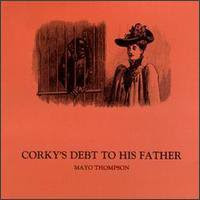 With the exception of the Raincoats and the Slits, LiLiPUT was really the only other viable contender to the mantle of best all-female post-punk band; and they're Swiss! If you like either of the aforementioned groups, LiLiPUT is essential listening. - Ariel
With the exception of the Raincoats and the Slits, LiLiPUT was really the only other viable contender to the mantle of best all-female post-punk band; and they're Swiss! If you like either of the aforementioned groups, LiLiPUT is essential listening. - ArielFormed in Zurich in 1978 by guitarist Marlene Marder and bassist/vocalist Klaudia Schiff, [Liliput] began with the name Kleenex until the threat of a lawsuit by corporate giant Kimberly-Clark (who had copyrighted the name Kleenex) forced them to become Liliput in 1980. Recording for the great English indie label Rough Trade, the then-Kleenex produced jumpy, aggressive, clamorous punk-noise that featured Marder's scratchy, semi-melodic guitar and Schiff's yelping vocals. Not punk rock in the fast, loud, economical sense, Liliput were forging a different kind of punk, one that was gleefully anarchic, avant-garde, unrestrained, and suffused with a giddy, almost palpable sense of joy. Listening to this music, one gets the sense that there was a near-rapturous enjoyment that went into these recordings. Their tenure at Rough Trade was short, as was their interest in exploring career options beyond Europe.
By 1982, when they released their first LP, they seemed perfectly happy remaining in Switzerland, running the band as part of numerous other artistic projects (painting, writing, etc.) they pursued. By the end of 1983, Liliput had disbanded, and the music they had recorded quickly achieved legendary, but mostly unheard, status. As for the band, they seemed destined to be relegated to the status of feminist-inspired punk rock footnote. All of this changed in 1993, when the Swiss label Off Course released a double-disc, 46-track compilation of the entire recorded output of Kleenex/Liliput. The result was one of the great reissues of the decade. Unfortunately, it went out of print shortly after its release, but Kill Rock Stars released it again in early 2001, making it more accessible than before. The exuberance and excitement of Liliput's breathtaking music can be enjoyed once again, and a band that was almost forgotten returns with some of the most artful, contemporary, truly alternative music to be recorded under the genre identifier of punk rock. Also, fans of riot grrrl rock take note: this was a tremendously influential band. Although they eschewed extreme confrontation, there is a compelling sense of self that imbues this music and lit the way for a new generation of female musicians.
[John Dougan, allmusic.com]
Download Disc 1
Download Disc 2
[John Dougan, allmusic.com]
Download Disc 1
Download Disc 2





 Criminally underrated, bursting with energy, Human Switchboard combined art-rock edge with melodic pop music in an irresistible package; this is essential for fans of the "Hoboken Sound" of the early eighties, drawing comparisons to co-contemporaries such as The Bongos and The Feelies. Do yourself a favor. - Ariel
Criminally underrated, bursting with energy, Human Switchboard combined art-rock edge with melodic pop music in an irresistible package; this is essential for fans of the "Hoboken Sound" of the early eighties, drawing comparisons to co-contemporaries such as The Bongos and The Feelies. Do yourself a favor. - Ariel 





